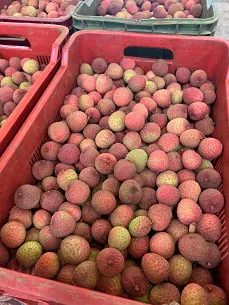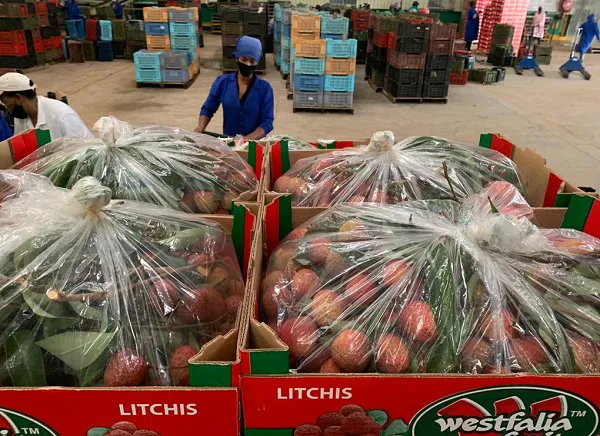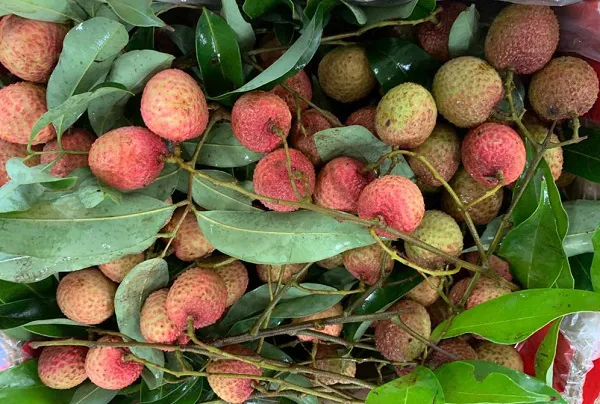“The new avocado season is upon us. On early greenskins like Fuerte and Pinkerton we should be seeing a normal crop but on Hass from South Africa the industry volume might be a bit reduced compared to 2020 because of alternate bearing,” says Don Westcott, Westfalia commercial manager, noting that the first official avocado estimate has not yet been released.
“Flowering and fruit set would have been influenced by last year’s big crop and we could be in for a slightly lower crop as an industry. That said, we expect improved fruit size thanks to the good early rains.”
He says that their first Mozambican Fuerte desktop samples are ripening well and the harvest will commence very soon from Sussendenga in the Chimoio region. The recent massive rains in South Africa from cyclone Eloise will influence when the season starts in the early production areas like Levubu.
“Ripening trials are showing still a lot of stem end rot, which you get when you pick too early and moisture levels in the fruit are still too high.”
Covid impact on logistics remains major challenge “We are hoping to avoid the shipping delays we had right through the avocado season last year."
“We are hoping to avoid the shipping delays we had right through the avocado season last year."
"Litchi shipping went reasonably well but delays were experienced on most vessels. This time of the year when the wind is howling, the port cranes can’t work, but also we’re in the second wave of Covid which further impacts on logistical and harbour operations, with a knock-on effect on fruit quality. The impact of Covid on logistics remains a major challenge for us going forward in 2021.”
It’s been a good litchi season for South Africa. In fact, he adds, he’d say it’s the first normal season in three years. Drought and heat have caused significant sunburn losses during previous years.
Their litchis are still arriving in Europe until the end of this month and the beginning of February, in time for Chinese New Year celebrations by communities in Paris and elsewhere; Don notes that their buyers actively look for litchis, a highly valued fruit.
Growing demand for non-sulphured litchis
For a few seasons now they have been sending small weekly consignments by air of fresh, non-sulphured litchis with the leaves on, sent in MA packaging to specialist buyers in France. They flew out the last consignment last week just before cyclone Eloise arrived.
 Fresh unsulphured litchis, packed for air freight (photos supplied by Don Westcott)
Fresh unsulphured litchis, packed for air freight (photos supplied by Don Westcott)
The shelf life of these litchis is about a week to 10 days, but the vivid colour of untreated fruit means demand for such fruit is expected to increase in future, he says.
“Early in the season we decided to minimise the amount of size ‘L’ fruit (that’s 30 to 32mm diameter) for export, and you would’ve seen all of those volumes of L fruit on the domestic market. Instead, given concerns about Madagascar’s volumes and the expected massive Malelane crop, we focused predominantly on exporting sizes XL and XXL to overseas markets.”
 Growing demand for the vivid colour of untreated litchis
Growing demand for the vivid colour of untreated litchis
Air freight costs during the Covid era have been “hectic”, so apart from some specific orders for XL and XXL by air to arrive in EU markets prior to the first seafreight arrivals, they made very limited use of air freight this season.
Hail in Tzaneen last November caused damage to the litchi crop that only became evident upon packing but in all, a reasonable litchi season transpired, with good arrivals to date.
Rungis wholesale market moved a massive volume of litchis earlier in the season from various origins, but for the moment, since the introduction of a 12-hour curfew the pace of sales has slowed down.
For more information: Don Westcott
Don Westcott
Westfalia
Tel: +27 15 3075253
Email: [email protected]
https://www.westfaliafruit.com/
